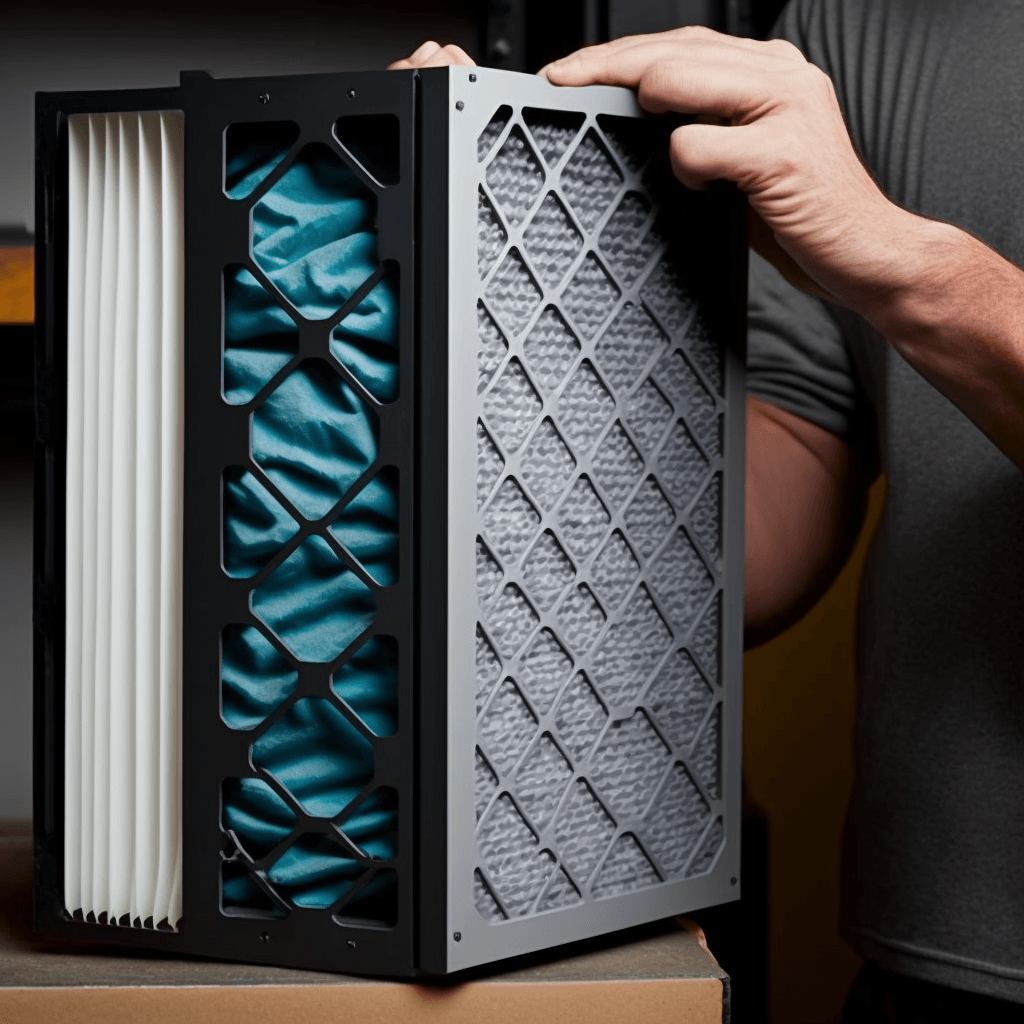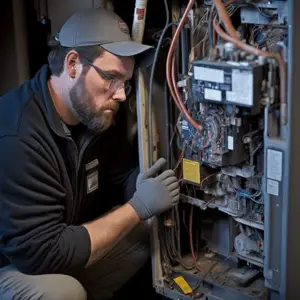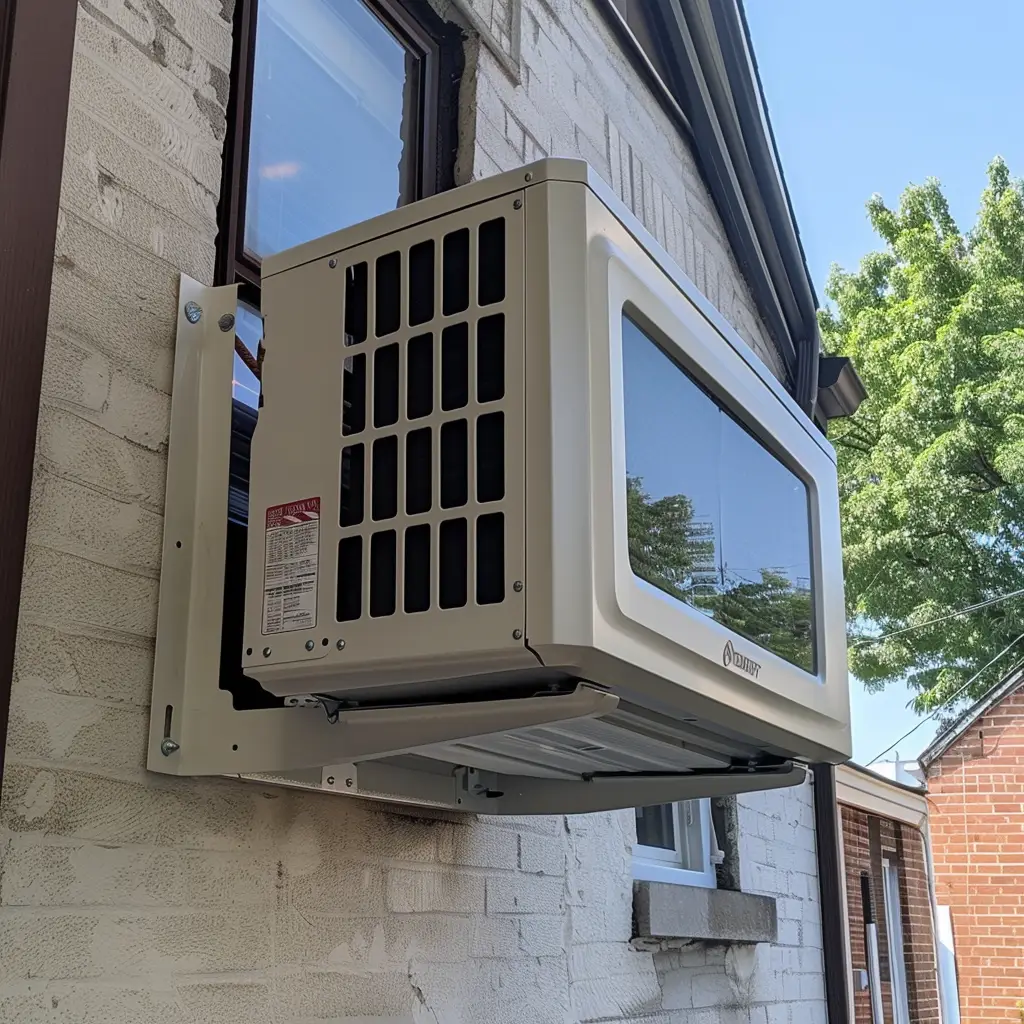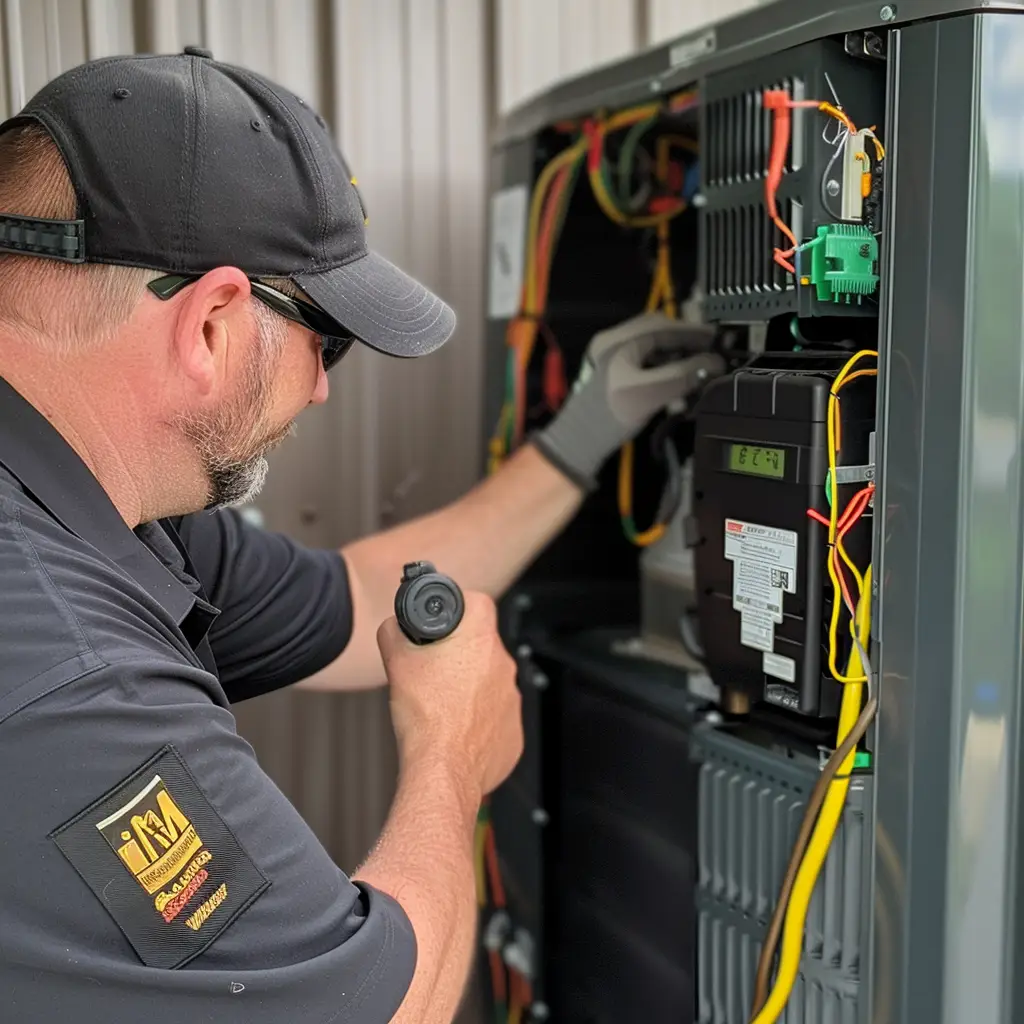Are you having trouble deciding on the right MERV rating for your furnace filter? Choosing the right filter is important for ensuring that your HVAC system is running efficiently and effectively removing contaminants from the air.
Here’s a guide on how to find the perfect MERV rating for your furnace filter.
What is MERV?
MERV, or Minimum Efficiency Reporting Value, is a scale used to measure the effectiveness of air filters. The scale ranges from 1 to 20, with higher ratings corresponding to finer filtration and higher efficiency.
Here is a chart showing the MERV rating scale and the types of contaminants each rating is effective at removing:
| MERV Rating | Contaminants Removed |
|---|---|
| 1-4 | Large particles such as mold spores, dust mites, and pet dander |
| 5-8 | Smaller particles such as pollen and some bacteria |
| 9-12 | Very small particles such as tobacco smoke and some viruses |
| 13-16 | Extremely small particles such as smoke and bacteria |
| 17-20 | Very fine particles such as smoke and viruses |
How to Choose the Right MERV Rating

There are a few factors to consider when selecting the right MERV rating for your furnace filter:
- Compatibility with your HVAC system: It’s important to choose a filter that is compatible with your HVAC system. Higher MERV ratings correspond to finer filtration, but also result in greater resistance to air flow. This can cause issues with your HVAC system, such as reduced air flow and increased energy consumption.
- Contaminants you are trying to remove: Different MERV ratings are effective at removing different types of contaminants from the air. A MERV 8 filter, for example, is effective at removing most mold spores, dust mites, and pet dander, while a MERV 13 filter can also remove smaller particles such as tobacco smoke and bacteria. Consider the contaminants you are trying to remove and choose a filter with a high enough MERV rating to effectively remove them.
- Cost and maintenance: Higher MERV rated filters may be more expensive and require more frequent replacement. Consider your budget and the maintenance requirements when selecting a filter.
What To Know Before You Buy A MERV Furnace Filter
- Frequency of filter replacement: Higher MERV rated filters may need to be replaced more frequently, which can increase the ongoing cost of maintaining your HVAC system. Consider the frequency of filter replacement when selecting a filter. Learn how to change a furnace filter
- Cost: Higher MERV rated filters may be more expensive upfront. Consider your budget and the potential long-term cost savings of a higher-rated filter, such as reduced energy consumption and improved indoor air quality.
- Quality of the filter: In addition to the MERV rating, the overall quality of the filter can impact its effectiveness and lifespan. Choose a high-quality filter from a reputable manufacturer to ensure that it performs well and lasts as long as possible.
In general, it’s a good idea to choose a filter with the highest MERV rating that is compatible with your HVAC system and meets your air filtration needs. It’s also important to regularly change your furnace filters to ensure that they are functioning properly and to maintain good indoor air quality.

Tips for Maintaining Your Furnace Filter
No matter what MERV rating filter your choose, furnace filter maintenance will be just as important as the quality of the filter.
- Check your furnace filter every month and replace it as needed.
- Consider using a higher quality filter to extend the time between replacements.
- Use a reminder system, such as a calendar or app, to help you remember to check and replace your furnace filter on a regular basis.
- Keep extra furnace filters on hand so that you don’t have to make a special trip to the store when it’s time to replace your filter.
By following these tips, you can ensure that your HVAC system is running efficiently and your indoor air quality is top-notch.
If you need more guidance on choosing the right MERV filter, watch this video by
ASIHeatingAndAir.





